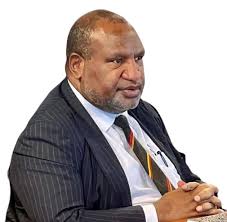by Tusi Tala, Staff Writer
Papua New Guinea’s Prime Minister, James Marape, has urged the nation to evolve into a high-income economy. He emphasized that by 2045, when PNG turns 70, it should have moved beyond its current low-income status and be on the path to becoming a thriving economy.
Marape highlighted the need for the populace to shift from merely exporting raw materials to developing manufacturing capabilities. This transition will require reliable and affordable electricity, accessible internet, and essential infrastructure such as ports and jetties.
He pointed out that urban areas must be redesigned, the education system overhauled to align with industry needs, and health services prepared for this significant change.
While acknowledging that this transformation will take time, Marape stressed the importance of laying the groundwork now. He outlined a government plan to break development into four critical five-year phases.
“As Prime Minister, my role is to set the vision,” he stated. “However, it is through the collective efforts of our people that this vision can be realized. We must unite and work harder than ever to create a better and more prosperous Papua New Guinea.”
James Marape is a prominent political figure in Papua New Guinea, currently serving as the Prime Minister. Born on April 24, 1971, in the Hela Province, Marape has a background in education and business, which paved the way for his entry into politics. He began his political career in 2012 as a member of the National Parliament, representing the Tari-Pori electorate. Marape’s leadership has been marked by a focus on economic reforms, infrastructure development, and efforts to increase the benefits of the country’s natural resources for its citizens. He became Prime Minister in May 2019, succeeding Peter O’Neill, and has since aimed to promote national sovereignty and improve the governance of Papua New Guinea. His tenure reflects a commitment to addressing issues such as poverty, education, and health, while navigating the complexities of both domestic and international politics.


